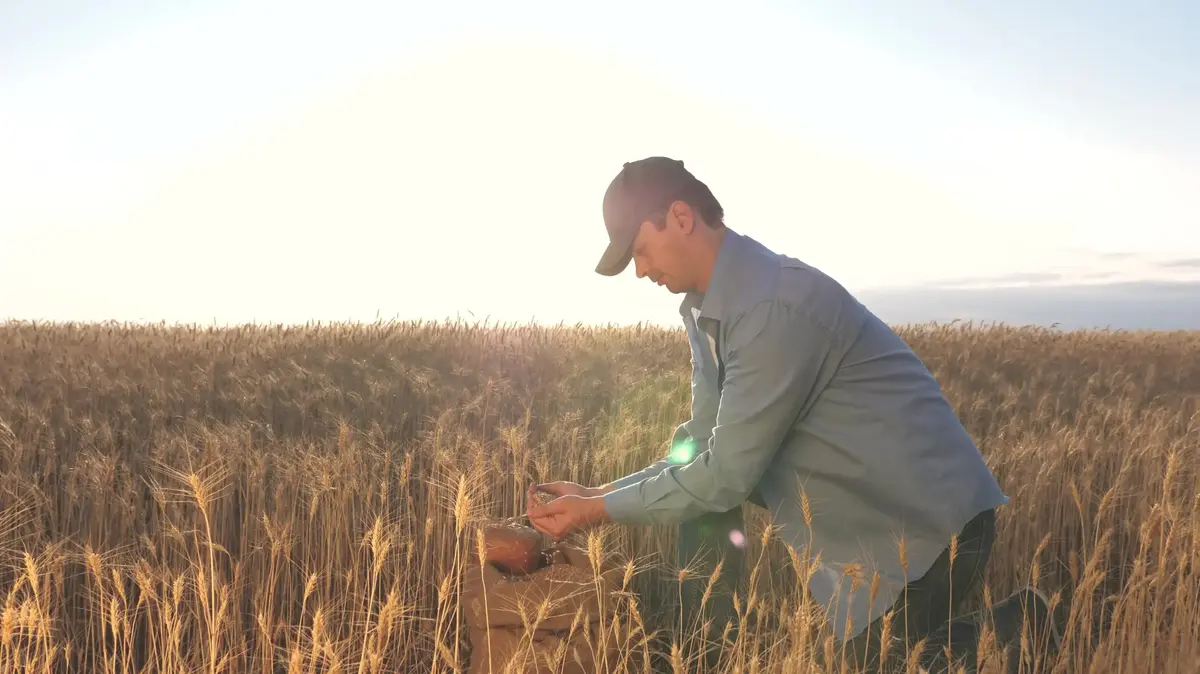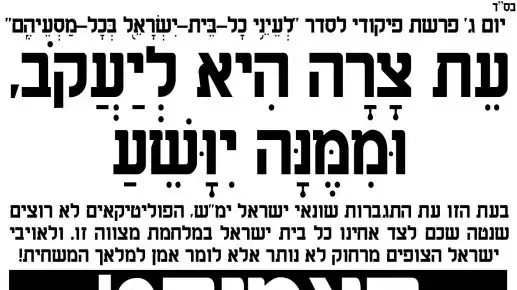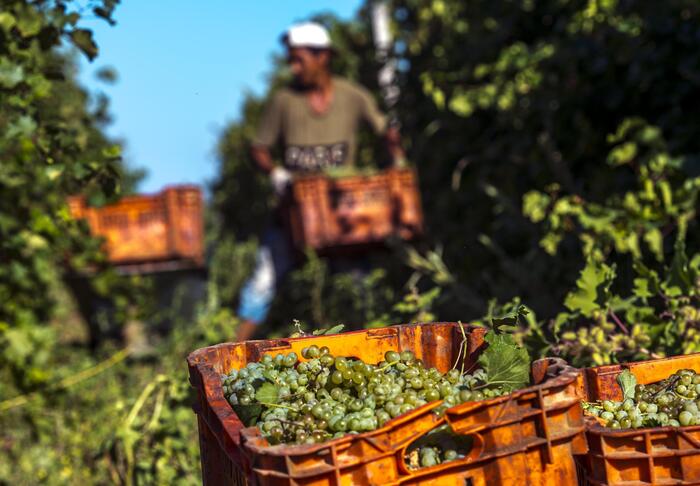Judaism
The king's son was furious with the farmer: Why are you destroying the land?
Every person should know that he is halfway there, and there is another good halfway ahead.
These are the things that emerge from this week's Torah portion, the Torah portion of Tisha, which Rabbi Pinto explained with the help of an interesting parable from a sacred number
Tags
Rabbi Pinto
Return of Israel
David Berger, in collaboration with Shuva Israel
Thursday, 04 March 2021, 11:55 Updated: 13:32
Share on Facebook
Share on WhatsApp
Share on general
Share on general
Share on Twitter
Share on Email
Parshas Hashavua is Parshas Ki Tissa, in which the Torah commands us to give half a shekel, "This is what the fetus will give on the controls of half a shekel in the holy shekel," and what can we learn from the parsha about our daily lives?
Here are the words of Rabbi Pinto, head of the Moroccan courts fathers, who gives us an optimistic message: the person should always know it halfway there before him half way better.
"All this evil has halfway"
We see this week's parsha Gd "He commands Moshe Rabbeinu that the children of Israel will donate half a shekel to the Temple.
A very strong question must be asked: Why exactly half a shekel?
Want to make a donation, to give a whole shekel.
Why give only half a shekel if it is easier to count a whole shekel and not half a shekel?
If so, why did God command to give half the shekel?
But we thought to clarify and say a great element - always when a person starts in his life difficult situations, the person should know that now the difficult situation he has, it is not what he will have all the time and with which he will have to deal all his life.
But one must always see that it is only half way, all the evil he has is half way.
It is difficult for a person and it is bad for him this is half way, soon there will be days when he will be good and the person will go through it.
A sick person must not be broken this half way, he will soon be healthy and well.
Therefore, the whole element of the people of Israel is half the shekel, half now is not good, another half will come when it will be good.
The person does not have to look at the hard and painful time that the person has now, another half will have a good person and a great satisfaction in things.
How is the farmer related?
(Photo: ShutterStock)
The son of the king is angry with the farmer
There is a parable and parable told in a holy book about a son of a king, who lives in the greatest indulgence.
That son of a king would live in a golden palace and cut off from all the life of this world, in every possible guard the king kept his son.
One day when the king's son ate bread, he thought and said how this bread was made, where it came from.
The king's son, who had no idea of anything, thought the bread grew on the tree, just as the tree grows fruits and vegetables.
One day the king's son came out of the palace and passed by a place where wheat and barley are grown.
He saw the farmer plowing the field.
The king's son, who had no idea why plowing the field, was very angry and said the land is so beautiful, why plow the field?
A few days later, the king's son passed by and saw the farmer again, this time taking seeds of wheat and barley and scattering them in the ground.
Said the king's son - why is he polluting the field?
Why is he throwing away those seeds?
After a few days again saw the farmer, this time dumping the soil.
Again the son of the king did not understand what that farmer was doing in the land.
As time goes on, the king's son arrives in the field and meanwhile wheat and barley are grown there.
The king's son rejoices greatly, and then sees the farmer that he reaps everything and is very angry, until they come and explain to him that the bread he eats does not grow on the tree.
In order for the bread to reach your home, you have to go through the whole process that the farmer does.
Only at the end do you understand the full picture
so also in matters of faith in Gd, if man looks only at the plowing of the field he will not understand anything of it, he is like the son of the king who passes by the seat and has never seen what plowing and what is sowing, he will think this person makes holes in the ground. If the bit he would watch discard the seeds in the ground did not understand, and so forth person will not understand if you see half way. a person can only understand at the end he gets the bread and bun, what the root of things.
a person must know basic Great, you can not look halfway through life, a person who looks halfway through life will never get anywhere. A person who starts a business and after a month says the business fails and closes it, he will never succeed. A person who opens a gemara and starts learning, suddenly does not understand and closes The Gemara will never succeed. A person who wants to succeed should look from beginning to end from beginning to end. Do not look halfway, if a person looks halfway he will not get anything in his hand. If the person is sick and he looks only at what hurts him now, he will have Absolute despair that he will not be able to live.
And he's looking at his role just now, he will not have the strength to continue.
A person who wants to be successful should look at everything in general, not look at half or a quarter of things.
The connection to half a shekel
and that is what half a shekel teaches us, the foundation of faith is half.
What there is now is half, one must not think that half is everything, after this half will come another half.
If that half was hard, the next half would be good and man has another complete way to go.
And from this it is also possible to understand that from the money of half a shekel we built the sills of the tabernacle, which would hold the tabernacle to signal to us that half a shekel is faith, the foundation of the building and of the people of Israel stands only on faith.
If a person has faith he has the power to survive and move, to stand and face anything difficult and if a person does not have faith, he will not be able to stand against anything and will not be able to achieve anything in his hand.
More on the Judaism channel
Lived near the beit midrash: the deaf brothers who began to hear unexpectedly
Share on Facebook
Share on WhatsApp
Share on general
Share on general
Share on Twitter
Share on Email







